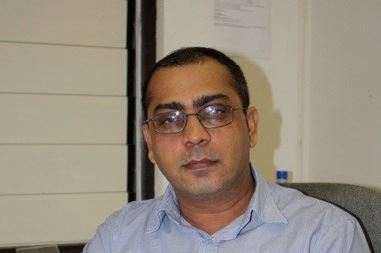Forum Opinion: Pacific needs powerful voice against superpower dominance
Wednesday 8 November 2023 | Written by Supplied | Published in Editorials, National, Opinion, Pacific Islands Forum

Dr Shailendra Singh. 23110767
The Pacific Islands Forum chair and Cook Islands Prime Minister, Mark Brown, is emerging as one of the more powerful Pacific leaders’ voices in projecting the region’s concerns and priorities to the world, writes Dr Shailendra Bahadur Singh.
Knowing that the international attention is focused on the Pacific Islands Forum meeting currently underway in Rarotonga, Brown was quick to emphasise that this year’s gathering should, and would be led by issues that concern Pacific leaders, rather than superpowers like the United States and its allies like Australia. Or their chief adversary, China.
Forum meetings have been described by one scribe in Rarotonga as “little more than an annual retreat for island leaders” and by another analyst as “largely a talkfest”.
That may have been the case in the past, but not anymore.
With the Pacific region’s strategic importance in the super power contest between the United States and China firmly established, the stakes at this Forum meeting - and forthcoming ones - are evidently much higher than ever before.
Besides the three most prominent nations with the strongest presence in the region - Australia, New Zealand and the United States - the 52nd meeting expects representations from France, Taiwan, Japan, India, Germany, Cuba, Ghana, Norway, Turkey, Singapore, Portugal, and the Philippines.
Most, if not all the countries in this group want stronger presence and greater influence in the Pacific.
Never since the end of the Cold War has the Pacific received this level of interest and attention, largely due to big power military and economic rivalry. This has elevated the international status of the annual Forum meetings to a significantly higher level.
Hence, Forum chair Brown’s move to quickly assert the region’s position and priorities in the global order, and establish the ground rules for deliberations, via the international media assembled in Rarotonga.
It was a preemptive strike, with Brown’s first-hand experience of how some visiting foreign leaders tend to steal the limelight and push forward their own agenda, often at the expense of Pacific Island leaders, who become a sideshow in their own region, with little opportunity to talk about their problems, or articulate their vision for a better future.
Brown gave the example of how the former US Secretary of State, Hillary Clinton, hijacked the last meeting in the Cook Islands in 2012, where “all the oxygen that we had generated as a Pacific region was sucked up by the USA”.
Some of Brown’s worst fears about focus and priorities were somewhat confirmed with international media linking the absence from the Forum of prime ministers of Solomon Islands, Vanuatu and Papua New Guinea to various differences, including differing stances on China and the United States.
The Solomon Islands pro-China Prime Minister, Manasseh Sogavare, boycotted a major Pacific leaders meeting in Washington recently to avoid being “lectured” by the Americans, he said, while lavishing praise on China.
Brown has reiterated that climate and economic security are the region’s biggest priorities and should be taken seriously, rather than assumption that “Pacific Island countries don’t know what they are doing”, which is “very insulting”.
According to Brown, the Forum should focus on opportunities to “lift the prosperity of our people”, which makes sense given the levels of poverty, disease and destitution in one too many island countries.
On his part, Forum secretary-general Henry Puna has emphasised time and again that the challenges in the Pacific are different, not to mention quite complex, even as the strategic interest in our region is at an all-time high.
In reality, the acuteness of the everyday struggles of ordinary Pacific Islanders can be overshadowed by the big power competition in the region, on which the international media tend to fixate on.
Therefore Brown’s call, on the eve of the Forum, to the United States and China to not “bring adversarial competition to the Pacific”. He highlighted that the Pacific is a ‘“region of collaboration not competition”.
However, the United States-China military and economic competition is now firmly embedded in geopolitics, and while Brown’s plea – to keep the hostilities at bay – is understandable, there is little that the region can do about it except to protest loudly and in unison at every given opportunity.
Fijian Prime Minister Sitiveni Rabuka recently proposed the Pacific as a ‘zone peace’ to act as a powerful example to a world consumed with conflicts from the Middle East to Ukraine.
But how does Rabuka’s call sit with countries like Fiji, Solomon Islands and Papua New Guinea being the beneficiaries of increased foreign military investments in the Pacific?
As I’ve written elsewhere, just as in World War II, the Pacific’s influence in the big-power contest is limited and when it comes to the crunch, the superpowers will do what they deem fit to protect and advance their own interests.
In this regard, leaders like Brown, Puna and others are needed as strong and unrelenting voices of the people to highlight their problems regularly and forcefully and insist on concrete commitments and agreements. This is simply because the risk of small nations and their peoples being ignored, sidelined and forgotten is very real, as history as shown.
Shailendra Bahadur Singh is an associate professor and head of the journalism program at The University of the South Pacific in Fiji. The views in this article are his own and do not reflect the position of The University of the South Pacific or Cook Island News.














































